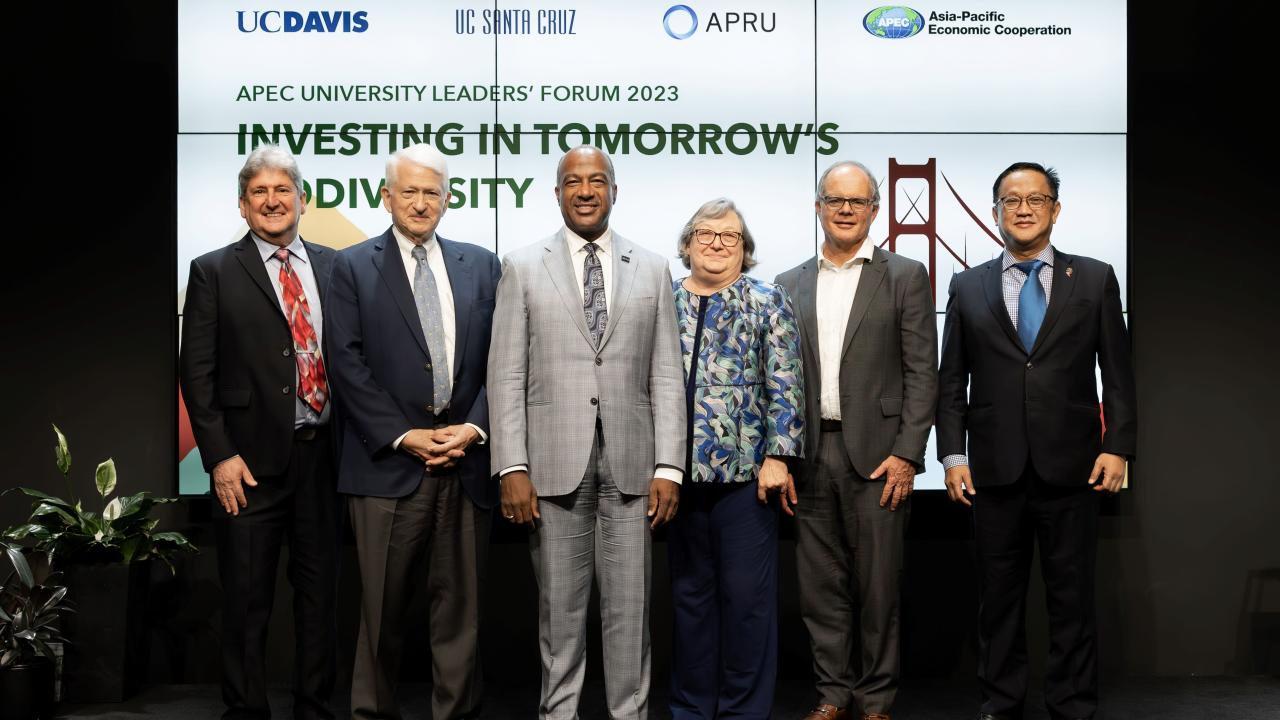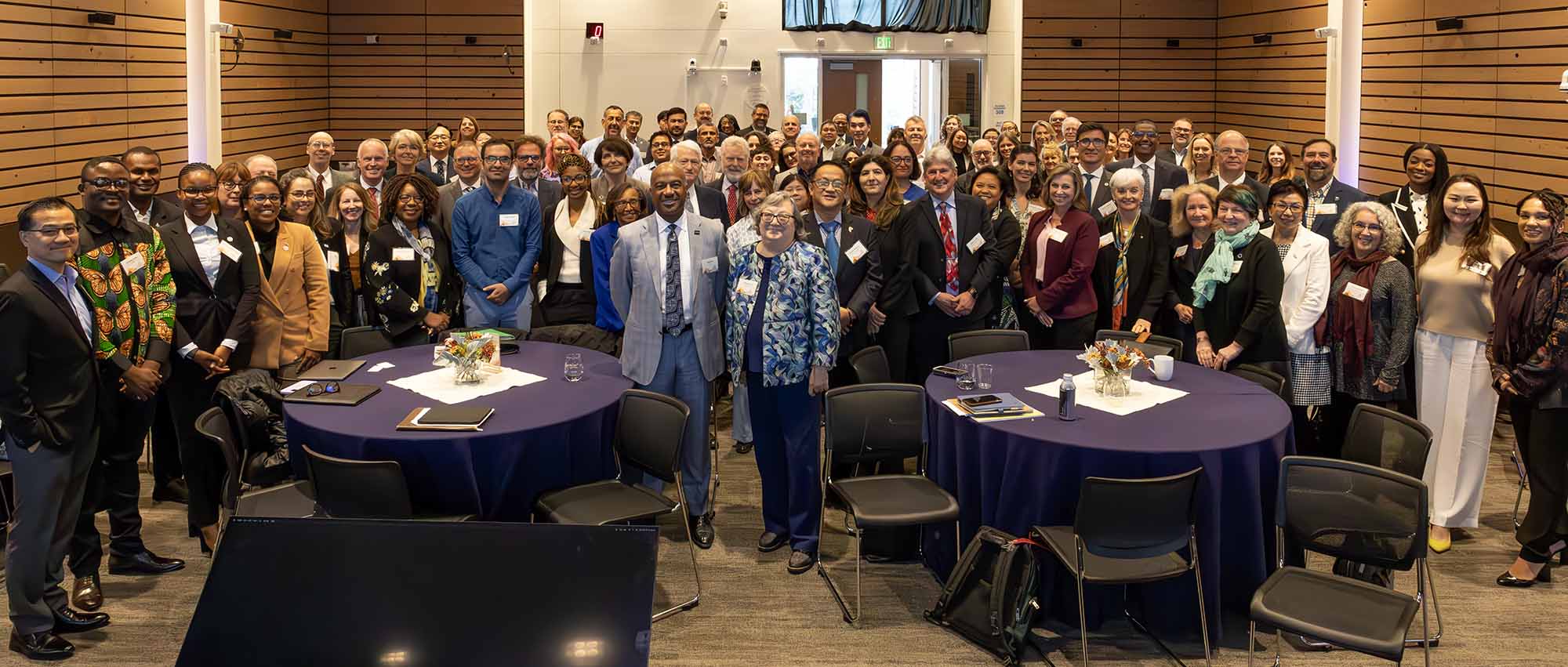
Worldwide Leaders Convene to Protect and Advance Global Biodiversity
UC Davis Hosts APEC University Leaders’ Forum
UC Davis hosted the Asia-Pacific Economic Cooperation University Leaders’ Forum Monday (Nov. 13), bringing together nearly 100 international environmental leaders to discuss sustaining and strengthening biodiversity amid climate change. The forum, “Investing in Tomorrow’s Biodiversity,” highlighted UC Davis’ efforts to make a positive impact on the environment.
“It’s our responsibility to take action in the face of devastating global biodiversity loss and climate change,” said Chancellor Gary S. May. “As leaders, we must continue to drive breakthrough scientific research and collaborate on innovative solutions to preserve the health of our planet. By working together, we can mitigate the impact of biodiversity loss and protect our ecosystems for generations to come.”
Co-sponsored by UC Davis, UC Santa Cruz and the Association of Pacific Rim Universities, or APRU, the event was held in San Francisco during the week of the annual Asia-Pacific Economic Cooperation, or APEC, CEO Summit. The forum featured high-level conversations between CEOs, policy leaders, university presidents and top researchers to drive investment in biodiversity.
Kicking off the event were welcoming remarks from May, along with UC Santa Cruz Chancellor Cynthia K. Larive and leaders from APRU, the APEC Secretariat and the California Natural Resources Agency.
A dynamic program
The forum featured keynote addresses by Food Systems for the Future CEO and Managing Director Ertharin Cousin, who served as U.S. Ambassador to the United Nations Agencies for Food and Agriculture, and by California Academy of Sciences Executive Director Scott Sampson. Four panels showcased expertise from worldwide leaders in business, non-governmental organizations and higher education.
Forum speakers were passionate and engaging, spurring discussions on the importance of education, the interconnectedness of the health of people and the planet, the critical need to work together across sectors and with a diversity of perspectives, and the unique role and responsibility of universities in innovation and sustaining the biodiversity landscape. UC Davis experts featured included Helene Dillard, dean of the College of Agricultural and Environmental Sciences; Ermias Kebreab, associate dean for global engagement in the College of Agricultural and Environmental Sciences; Jay Lund, vice director of the Center for Watershed Sciences; Eduardo Blumwald, distinguished professor and Will W. Lester Endowed Chair of the Department of Plant Sciences; and Jonna Mazet, vice provost of Grand Challenges.

Advancing sustainability
A global leader in sustainability and environmental research — on campus, in the classroom, and abroad — UC Davis is a living laboratory dedicated to developing, testing and providing solutions to address the world’s most pressing issues, including in areas related to climate change, biodiversity protection and conservation efforts, human and animal health, sustainable food systems and much more. UC Davis is committed to developing solutions for our most pressing global challenges and preparing all students to become the collaborative and inclusive leaders of tomorrow.
“As leaders in higher education, it's our responsibility to advance research initiatives and create solutions to address the most pressing issues of our day, climate change and biodiversity loss chief among them,” May said. “Our world-class researchers are at the forefront of using science to protect ecosystems. Among those involved in this work are scientists at UC Davis' Bodega Marine Laboratory, the Institute of the Environment and the Tahoe Environmental Research Center.”
As universities continue to adapt and evolve in a rapidly changing world, this forum provided a crucial platform for fostering global leadership and innovation. Attendees gained new insights and learned about opportunities to collaborate on efforts to support the health of our planet. Joining forces with collaborators will multiply our impact and increase our chances of making new discoveries and solving these complex problems.